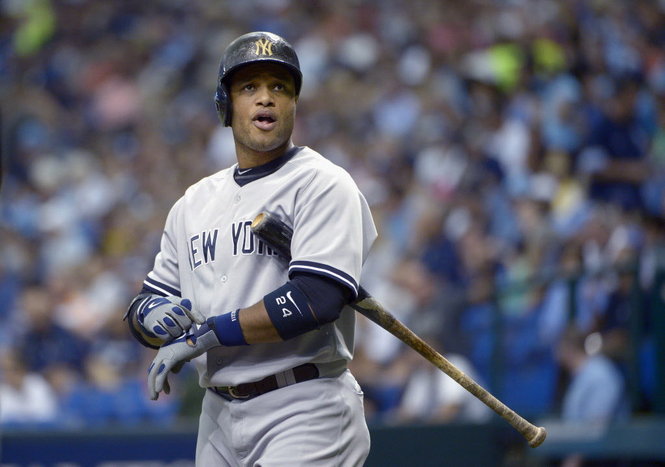The Seattle Mariners made a huge splash throughout baseball last week, inking the now former New York Yankee infielder to a mammoth 10-year $240 million contract. The blockbuster deal ties Robinson Cano with Albert Pujols for the 3rd most lucrative contract in the history of the sport. Cano was considered by most fans and analysts to be the top free-agent prospect on the market, and for good reason. The talented second-baseman brings the most consistent offensive production that you can find for the position. He slashed .314/.383/.516 for New York last season, good for an .899 OPS.
The signing is understandably exciting for Mariners fans, given that an excruciating lack of offense is the primary reason that the team has struggled to win games. The Mariners boasted the 22nd ranked offense in baseball last season, managing to score just 624 runs and get on base at a cumulative clip of .306. You can have the best pitching staff on the planet, but as Seattle fans have found out, it’s simply hard to win if you can’t offer your hurlers run-support. The signing of Cano represents a huge step in offsetting this problem. No disrespect to Nick Franklin, who showed flashes in limited work last season, but the infusion of Cano’s bat into the line-up is undeniably a massive upgrade over the .225/.303/.382 slash that he put up over his 369 at-bats. Franklin is only 22 and obviously comes with the potential to improve as he develops but Cano is a proven commodity, one of the best pure hitters in the game when he’s playing well.
Despite the buzz and excitement that the deal has generated, it is not without detractors. Most of the apprehension stems from the fact that Cano is 31. This means that even if the Mariners get 5-6 elite seasons out of him, it is highly improbable that he will be worth the money on the back end of the contract.
This is a legitimate criticism. But these inflated contracts are just an unfortunate bi-product of the nature of free agency. Recent history demonstrates that in order to sign elite talent on the market, you will be overpaying for players. You don’t need to look any further than the seven-year $153 million contract the Yankees heaped on former Red Sox star Jacoby Ellsbury to see evidence of this. Ellsbury, while undoubtedly an elite-level outfielder and base stealer, probably won’t be worth the amount of money New York will be paying him in 2020. This is especially true when you consider that much of Ellsbury’s game is predicated on speed, something that is bound to decline as he gets older.
The difference in this situation, of course, is that the Yankees essentially operate with a seemingly blank checkbook and are simply more financially equipped to withstand whatever hit may result if their monster contracts don’t pan out. They’ve been paying a ridiculous amount of money to watch an aging and increasingly injury prone Alex Rodriguez decline, as well as blunder his way through steroid proceedings and fight a 200 game suspension. And they STILL were able to comfortably sign Ellsbury and shell out another $85 million for former Braves catcher Brian McCann on top of that. Being Brian Cashman must be nice.
Are these factors enough to suggest that the Cano signing is a bad call? If you look at it from a purely on-field production perspective I think there’s very little doubt that Seattle will eventually find themselves paying a sum of money that doesn’t justify the production that they will be receiving. But then what’s the alternative? I’ve written before about how the Mariners could benefit from a more full-out commitment to the sabermetric approach to player development to allow them to obtain undervalued talent at a discounted price. And I would still argue that this is the case. However, this takes time and also carries the burden of being an unpredictable endeavor. To demonstrate a desire to win immediately, teams that have the money will always be willing to empty their pockets for players that probably won’t be able to live up to the lofty expectations that invariably come with these massive contracts.
Obviously, we can only speculate as to whether or not the deal will ultimately be worth it. However, in the short term, Seattle just locked down the top player at his position and gave their line-up a big boost. If the Mariners can find a way to nab David Price (a move that some executives have speculated is in the works) or another quality pitcher, then they will also have one of the scariest rotations in the league to compliment this offensive upgrade. Can you imagine a pitching staff with Felix Hernandez, Hisashi Iwakuma and Price as the top 3 starters? Absolutely nasty. Whether or not the Cano contract is a fiscally viable move, it was deemed a necessary step in making the team competitive for the upcoming seasons. Even if it means they will be drastically overpaying for him down the road.
Add The Sports Daily to your Google News Feed!
